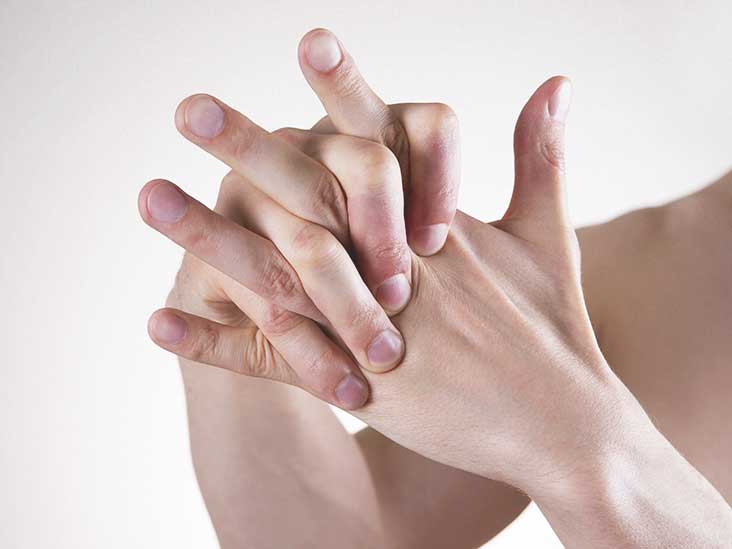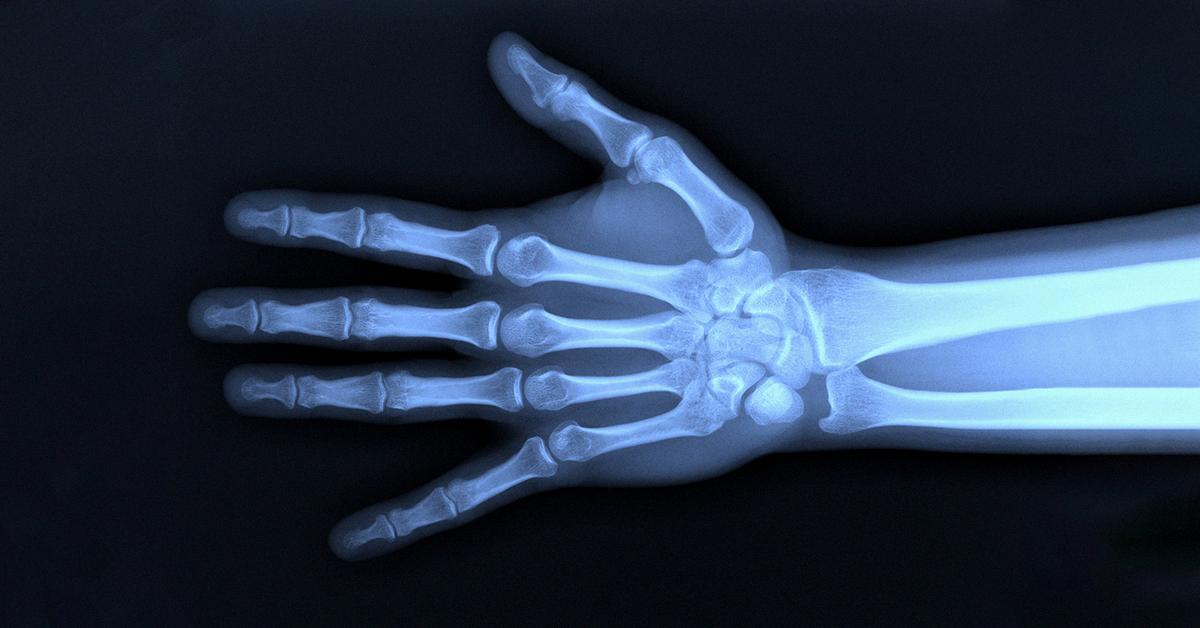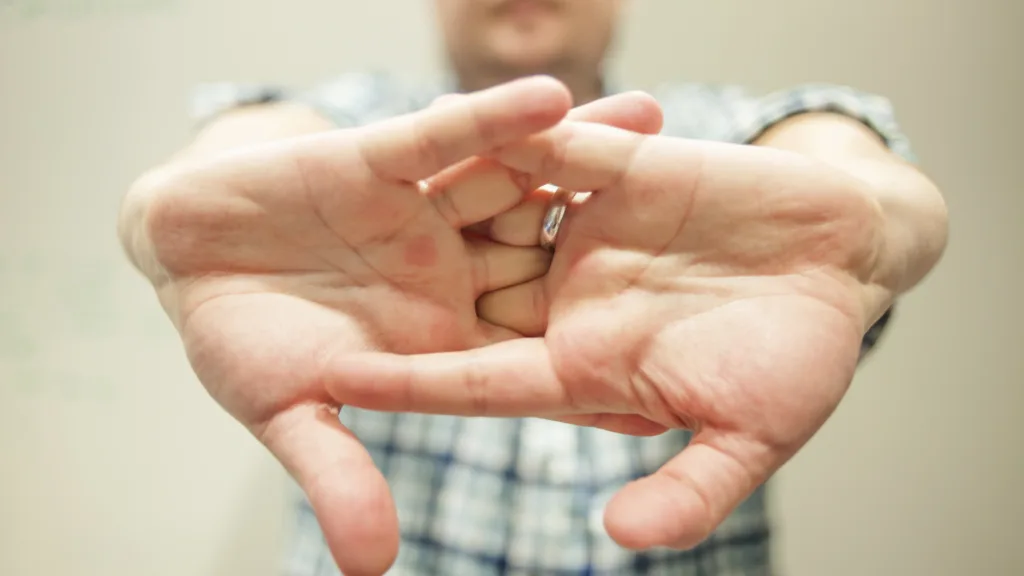For many years, people have been wondering whether cracking their knuckles can make them bigger or cause harm to their joints. This question has been a subject of debate, with many myths and misconceptions surrounding the topic. In this blog post, we will discuss the truth about cracking your knuckles and whether it can make them bigger.
First and foremost, let’s get one thig straight – cracking your knuckles does not make them bigger. The sound you hear when you crack your knuckles is caused by the popping of gas bubbles in the synovial fluid that lubricates your joints. The act of cracking your knuckles does not affect the size or shape of your joints in any way.
Now that we’ve debunked the myth about cracking knuckles making them bigger, let’s talk about whether it’s harmful to your joints. Many people believe that cracking your knuckles can cause arthritis or other joint problems, but this is not true. Several studies have been conducted that show no link between cracking your knuckles and joint damage or arthritis.
However, there are some potential risks associated with cracking your knuckles. Repetitive cracking can cause some wear and tear on the joints over time, which could lead to inflammation and discomfort. Additionally, if you crack your knuckles forcefully or excessively, you could potentially injure the joint or surrounding tissues.
If you experience pain or swelling in your joints after cracking your knuckles, it’s essential to consult a doctor. You may have caused an injury to the joint, which could require medical attention.
Cracking your knuckles does not make them bigger and is generally not harmful to your joints. However, excessive or forceful cracking can cause some wear and tear on the joints over time, which could lead to inflammation and discomfort. If you’re concerned about the health of your joints or experience pain or swelling after cracking your knuckles, it’s always best to consult a doctor for advice.
Does Knuckle Cracking Cause Swelling?
There is no scientific evidence to support the claim that cracking your knuckles makes them fatter. The popping sound that occurs when you crack your knuckles is caused by the release of gas bubbles that build up in your joints. This process, also known as cavitation, does not cause any permanent changes to your knuckles.
In fact, studies have consistently shown that cracking your knuckles does not harm your joints. While it may be annoying to thoe around you, the act of cracking your knuckles has not been linked to any negative health effects. Therefore, it is safe to say that cracking your knuckles does not make them fatter.

Causes of Enlarged Knuckles
The size of our knuckles can be affected by various factors, but the most common one is the development of bone spurs or osteophytes. These bony growths are often formed around the joints as a natural response to the wear and tear caused by daily activities or aging. In particular, osteoarthritis, a degenerative joint disease, can cause the cartilage between the bones to break down, leading to the growth of bone spurs. As these spurs grow, they can make the knuckles appar larger, swollen, and stiff. Other conditions like rheumatoid arthritis, gout, and psoriatic arthritis can also cause inflammation and joint damage that result in knuckle enlargement. In some cases, genetic factors may play a role, as some people are born with naturally larger knuckles.
The Effects of Cracking Knuckles Too Much
Cracking your knuckles consistently over time can have negative effects on your joints. The act of cracking your knuckles involves stretching your joint and creating a vacuum, which cuses the pop sound. This can cause temporary relief, but if done excessively, it can lead to joint damage. The repeated stretching of your joints can wear away at the cartilage, which can lead to inflammation and pain within your joints. In severe cases, excessive knuckle cracking can cause joint swelling, stiffness, and even a decrease in grip strength. It is recommended to avoid cracking your knuckles excessively to prevent any long-term damage to your joints.
Is Knuckle Popping Harmful to Health?
The act of knuckle popping or cracking has been a controversial topic for many years. Some people believe that it can provide relief for joint pain and stiffness, while others claim that it can lead to negative effects such as arthritis.
However, according to medical professionals, cracking your knuckles does not pose any significant harm to your joints. The sound that is produced when you crack your knuckles is due to the release of gas bubbles that form in the synovial fluid surrounding your joints. This process is known as cavitation and is a natural occurrence that happens when you move your joints.
While cracking your knuckles may not case any harm, it is not necessarily considered a healthy habit either. The repetitive action of knuckle popping can lead to ligament and tendon damage over time, which can potentially cause joint instability.
Cracking your knuckles is not considered harmful to your joints or a cause of arthritis. However, it is also not a healthy habit to engage in due to the potential for joint damage. If you experience joint pain or stiffness, it is recommended to seek medical advice rather than relying on knuckle popping as a solution.
Does Cracking Your Back Increase Height?
There is a common belief that cracking your back can make you taller, but this is actually a myth. The act of cracking your back, also knon as spinal manipulation, involves applying pressure to the joints and tissues surrounding the spinal column, causing a popping or cracking sound. This sound is caused by the release of gas bubbles from the joints, creating a vacuum that leads to the popping sound.
Cracking your back does not have any effect on your height or growth. The height of an individual is determined by genetics and factors such as nutrition and physical activity. The popping sound that occurs when you crack your back is simply a result of the release of gas from the joints and does not involve any impact on your bones or muscles that could affect your height.
It is important to note that cracking your back can be dangerous if done incorrectly or too frequently. Excessive spinal manipulation can lead to injuries such as muscle strains or tears, nerve damage, and even fractures or dislocations. Therefore, it is recommended to seek professional medical advice before attempting to crack your back.

Source: seattleneuro.com
Thickening Knuckles
Thickening your knuckles involves strengthening the underlying muscles and bones. One way to achieve this is to perform exercises that specifically target the hand and wrist muscles. One excellent exercise for thickening your knuckles is the knuckle push-up. To do this exercise, start by getting into a push-up position but insted of placing your palms on the ground, make a fist and place your knuckles on the ground. Then, lower your body down until your chest almost touches the ground, and then push back up using your knuckles.
Another exercise that can help thicken your knuckles is grip strengthening exercises. These exercises involve squeezing and releasing objects such as stress balls, tennis balls, or grip strengtheners. By repeatedly squeezing and releasing these objects, you will strengthen the muscles in your hands and fingers, which can help to thicken your knuckles.
It’s also important to maintain proper form during any weightlifting or boxing exercises to avoid injuring your hands and fingers. Wearing gloves or wraps during your workouts can provide extra support and protection for your knuckles. Additionally, consuming a diet rich in calcium, vitamin D, and protein can support bone health and aid in the thickening of your knuckles over time.
Does Aging Affect the Size of Hands?
Hands can get bigger with age. This is because the bones in our hands continue to grow and change throughout our lives. Additionally, as we age, our skin and connective tissue can lose elasticity, causing our hands to appear larger or more wrinkled. Another factor that can contribute to larger hands in some people is the production of growth hormone by the brain. This hormone helps bones grow longer and wider, and some adults may continue to produce it at higher levels, leading to bigger hands and other physical changes. It’s important to note that not everyone will experience a noticeable increase in hand size as they age, and there are many other factors that can affect hand size and shape, including genetics and overal health.
Does Aging Affect Finger Size?
Fingers can get bigger with age due to a variety of factors. One primary reason is weight gain, whch can cause an increase in overall body size, including the fingers. Additionally, hormonal changes during menopause can cause fluid retention, leading to temporary swelling in the fingers. Arthritis and other joint conditions can also cause inflammation and swelling in the hands, leading to larger finger size. Genetics can also play a role, as some people may have naturally thicker fingers. It’s important to keep in mind that finger size can fluctuate throughout a person’s life, so it’s best to have rings resized periodically to ensure a comfortable fit.
The Consequences of Knuckle Popping Addiction
The reason why some people become addicted to popping their knuckles is not entirely clear. However, one theory is that the sound and feeling of the pop provide a sense of satisfaction or relief. When you crack your knuckles, you stretch the joint and create a vacuum. This vacuum cases the release of gas (mostly nitrogen) from the synovial fluid, which lubricates the joints. The sudden release of gas creates the popping sound that many people find satisfying. Additionally, cracking your knuckles may also provide a temporary feeling of relaxation or relief, which can be a form of self-soothing behavior. However, some studies have suggested that excessive knuckle cracking may lead to joint damage or arthritis in the long run. So, while it may provide temporary satisfaction, it’s important to be mindful of the potential risks involved with this habit.

The Benefits of Popping Joints
Popping joints may feel good due to the release of endorphins in the body. Endorphins are chemicals that are naturally produced by the body to manage pain and provide a sense of pleasure. When a joint pops, it may cause a sensation of relief, whih triggers the release of endorphins, leading to a feeling of satisfaction. Additionally, popping joints can also release built-up pressure and improve joint mobility, which can further contribute to the pleasurable sensation. However, it is important to note that excessive or forceful joint popping may lead to joint damage or injury, so it should be done in moderation or avoided altogether.
The Risks and Benefits of Cracking Joints
Joint cracking, also known as joint popping, is a common habit that many people have. However, whether or not it is good to crack your joints is a matter of debate. While some people may find joint cracking to be satisfying or even relieving, others may find it uncomfortable or annoying.
While there is no evidence to suggest that joint cracking is harmful to your joints, there is also no evidence to suggest that it is beneficial. Joint cracking occurs when you pull apart the bones in a joint, which creates a vacuum that causes a pop or cracking sound. This sound is created by the release of gas from the joint, primarily nitrogen, carbon dioxide, and oxygen.
While some people may feel that joint cracking prvides relief from tension or stiffness, there is no scientific evidence to support this claim. In fact, excessive joint cracking can cause inflammation, which can lead to joint pain and discomfort.
While joint cracking is not harmful, it is also not beneficial. If you find yourself cracking your joints frequently and it is causing you discomfort, it may be best to speak to a healthcare professional to determine if there are any underlying issues that need to be addressed.
Conclusion
The common belief that cracking your knuckles can lead to joint damage or arthritis is nothing more than a myth. While the sound can be annoying to some, it is not harmful to your joints. However, if you experience sudden pain or swelling after cracking your knuckles, it may indicate an injury to your joint, and you should seek medical attention. Additionally, consistent cracking of your knuckles can lead to the wearing away of cartilage in your joints, causing inflammation and pain over time. Therefore, it is recommended to limit the habit of cracking your knuckles to prevent any potential long-term effects on your joints.
